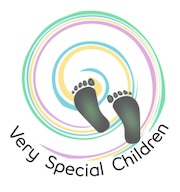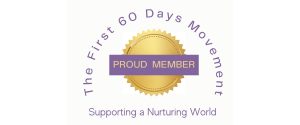Very Special Children believes that every baby or young child who experienced a traumatic birth or is at risk of developing a motor disorder must receive specialised neuro-developmental intervention immediately. Early intervention is crucial.
Babies with developmental delays needs ongoing support to stimulate their underdeveloped/ injured sensory-motor systems to reach their motor milestones and prevent further delays that may cause life-long dependency and social-emotional challenges to their life. Early pre-verbal movement development is the foundation for all learning.
We work with committed parents, collaborate with family-supporting charities and organisations to educate the children’s caretakers and provide hands-on consistent, practical movement sessions for the children.
Babies learn through experience, and experience arises by need. The brain is an infinite vessel of potential, but only when a need for it develops can it be accessed.
The methods and modalities we use directly provoke and stimulate the balance (vestibular), touch (tactile) and feeling of the body in space (proprioception) sensory systems to create new and stronger connections and improve communication between the body and the brain.
The developing and improving sensory-motor system results in improving motor functions.
There are still many debates among professionals regarding the most effective intervention for neurodevelopment. We all agree on focusing on the sensory-motor system and its founding senses supporting the body and brain.
| TOUCH | BALANCE | BODY-IN-SPACE |
| Touch is the first language of a newborn. Body language is the language of babies. Just like verbal language, touch offers various styles, messages, and feelings. Working with ‘Very Special Children’ and understanding how touch can communicate connection, safety, and love is essential( for all babies). Therapeutic touch helps babies to learn about their bodies, develop their body-in-space sense, and gain better control over their movements in loving, caring hands. Using specific forms of touch, we can calm or activate muscle tone and boost communication within the sensory-motor systems. Therapeutic Play is an integrative approach to stimulating all physical, emotional and social development areas. | The responsibility of the balance system is MUCH MORE than keeping us upright and moving in space! Balance is not an ability to have; it’s a continuously developing skill we achieve. It is the first and most vulnerable sensory system to mature inside the womb. It plays a significant role in developing muscle tone, arousal, eye movements, postural control, and body movements by sending signals and reporting detected motions to different brain centres. Without balance, we cannot function. Due to the early development of the balance system, all prenatal injuries can damage the vestibular system. | The sense of body-in-space is a dynamic system helping the body stay in control despite changing movement environments. These include changing body positions and places (rolling, crawling, standing up, walking) or speed and directions, such as running and dancing. This sensory system requires a clear communication flow and reliable information from the other senses (vision, hearing, smell, balance, and touch) to work effectively and efficiently. |


